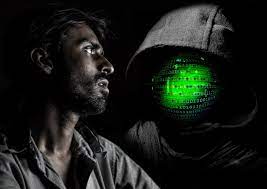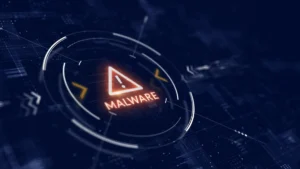
The internet has become an essential part of our daily lives. It provides us with access to vast amounts of information and connects us with people from all over the world. However, there is a side of the internet that is not easily accessible, a hidden world known as the Dark Web. In this article, we will explore the Dark Web, its features, and its potential implications.
What is the Dark Web?
The Dark Web is a portion of the internet that is not indexed by traditional search engines. This part of the internet is also known as the Deep Web, and it is estimated to be up to 500 times larger than the surface web that most people use every day.
The Dark Web is not accessible using regular web browsers like Chrome or Firefox. Instead, users need to use specific software, such as Tor (The Onion Router), to access the hidden websites.
The Dark Web is primarily used for illegal activities, such as drug trafficking, human trafficking, and arms trading. It is also a hub for various criminal networks, including hacking groups, fraudsters, and cybercriminals. Due to the anonymity it provides, the Dark Web has become a hotspot for criminal activities.
Features of the Dark Web
The Dark Web is not just a single entity. It consists of several different networks that allow users to communicate anonymously. Some of the notable features of the Dark Web are:
- Anonymity: The Dark Web provides users with a high level of anonymity, making it difficult for law enforcement agencies to track their activities.
- Encryption: The Dark Web uses encryption to protect the identity of users and the content they share.
- Privacy: Dark Web users can communicate without the fear of being monitored by third parties.
- Hidden services: The Dark Web has a unique feature that allows websites to remain hidden from search engines and the surface web.
Implications of the Dark Web
The Dark Web has several implications, both positive and negative. Here are some of the implications of the Dark Web:
- Criminal activities: As mentioned earlier, the Dark Web is a hub for illegal activities such as drug trafficking, human trafficking, and arms trading.
- Privacy: The Dark Web provides users with privacy and anonymity, which is important for people living in oppressive regimes or for whistleblowers.
- Cybersecurity threats: The Dark Web is also a hotspot for cybercriminals, who use it to share malware, viruses, and other malicious tools.
- Freedom of speech: The Dark Web allows people to communicate without fear of censorship or persecution.
To further delve into the Dark Web, it is essential to understand the technology that powers it. The Dark Web uses a unique protocol known as Tor to provide anonymity to users. Tor works by routing internet traffic through several layers of servers, making it challenging to track the user’s activities.
The servers are also called relays, and they encrypt the traffic before passing it to the next relay in the network. The final relay then sends the traffic to its destination, which can be a website or another user.
While Tor provides anonymity, it is not foolproof. Law enforcement agencies have developed techniques to track down users on the Dark Web. They use techniques such as traffic analysis, which involves monitoring the traffic on the network to identify patterns and potential threats. They also use hacking tools to infiltrate the network and track down the users.
Another important aspect of the Dark Web is the marketplace for illegal goods and services. These marketplaces operate on the Dark Web, and they are accessible only through specific software or tools.
The marketplaces offer a range of illegal goods, including drugs, weapons, stolen credit cards, and counterfeit money. The transactions on these marketplaces are often done using cryptocurrencies such as Bitcoin, making it challenging to track the buyers and sellers.
The Dark Web is also a hub for hacking groups and cybercriminals. These groups use the anonymity provided by the Dark Web to plan and execute their attacks. They also sell tools such as malware, ransomware, and hacking tools on the Dark Web. These tools can be used to steal sensitive information, take control of computer systems, and disrupt critical infrastructure.
Conclusion
The Dark Web is a complex and often misunderstood aspect of the internet. While it provides privacy and anonymity, it is also a hub for criminal activities and cybersecurity threats.
It is essential to be cautious when exploring the Dark Web and to understand its implications fully. It is also crucial to remember that the anonymity provided by the Dark Web is not foolproof, and law enforcement agencies are continually developing techniques to track down users.
The implications of the Dark Web are numerous, and it is important to understand them fully to make informed decisions about its use.

